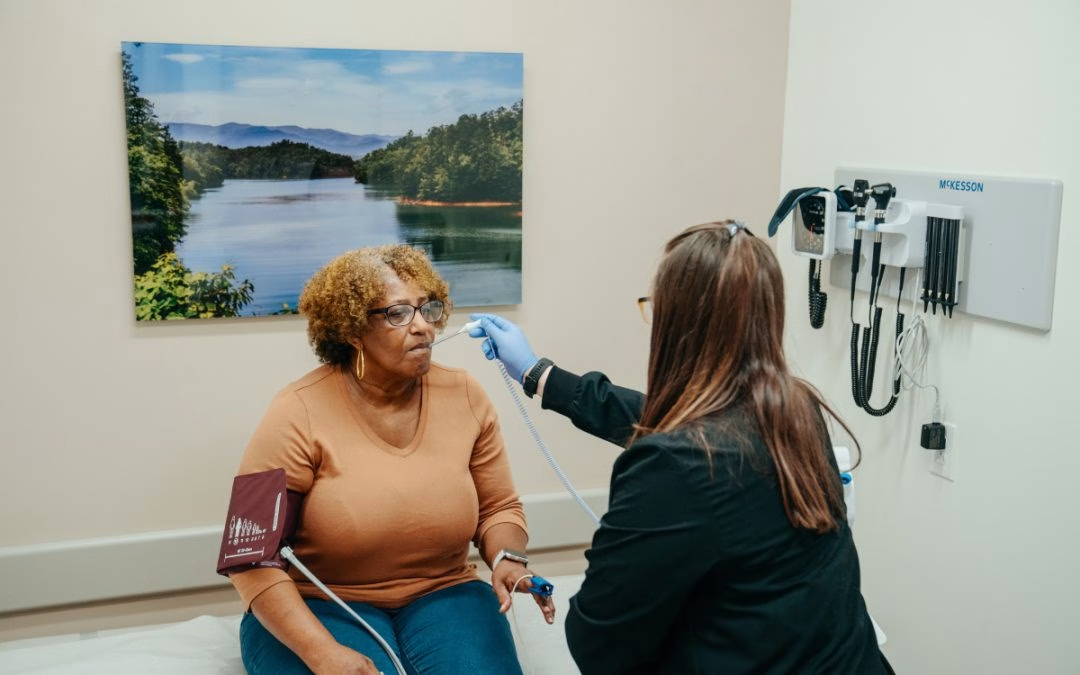
With winter illness season approaching, it’s important to stay informed about respiratory infections like walking pneumonia. While East Tennessee’s colder months are perfect for enjoying local attractions, staying healthy should remain a priority. Understanding walking pneumonia, recognizing its symptoms, and knowing when to seek medical care can help you recover faster and avoid spreading the illness to others.
In this blog, we’ll explore what walking pneumonia is, how it differs from regular pneumonia, common symptoms, treatment options, and when to visit AFC Knoxville for professional care.
What Is Walking Pneumonia?
Walking pneumonia is a mild form of pneumonia—a lung infection caused by bacteria, viruses, or even environmental factors like mold exposure. Unlike typical pneumonia, which often requires bed rest or hospitalization, walking pneumonia is less severe. The term “walking” refers to the fact that many people with this condition can continue their daily activities despite feeling unwell.
How Does Walking Pneumonia Differ from Regular Pneumonia?
The primary difference between walking pneumonia and regular pneumonia lies in the severity of symptoms. Walking pneumonia typically causes milder discomfort, while regular pneumonia can lead to severe symptoms such as high fever, shortness of breath, and significant chest pain. Regular pneumonia may require hospitalization, especially in individuals with underlying conditions or weakened immune systems.
While walking pneumonia might not seem as concerning, it can still spread to others and cause complications if untreated, particularly for vulnerable populations like young children, older adults, and those with chronic health conditions.
Common Symptoms of Walking Pneumonia
Walking pneumonia symptoms often mimic those of a cold or flu, making it tricky to identify. However, symptoms tend to persist longer than with typical respiratory infections. Common signs include:
- Persistent cough
- Sneezing
- Headache
- Body aches
- Fatigue
- Low-grade fever
- Chest congestion
- Sore throat
Symptoms may take up to two to four weeks to appear after exposure, during which you can unknowingly spread the illness. If you notice these symptoms, especially if they linger or worsen, it’s important to consult a healthcare provider.
How to Treat Walking Pneumonia
Treatment for walking pneumonia depends on the cause:
Bacterial Causes: If walking pneumonia is caused by bacteria, antibiotics are typically prescribed to help the body fight the infection. It’s essential to complete the entire course of antibiotics, even if symptoms improve, to ensure the infection is fully eradicated.
Viral Causes: If the infection is viral, antibiotics won’t be effective. Instead, healthcare providers may recommend supportive treatments such as over-the-counter medications to manage symptoms, hydration, and rest while the infection resolves on its own.
Environmental Causes: If mold or another environmental factor is responsible, removing the irritant and treating the symptoms are key steps to recovery.
Regardless of the cause, prioritizing rest, staying hydrated, and avoiding strenuous activity can help your body heal more effectively.
When to Visit AFC
Although walking pneumonia is typically mild, certain situations warrant professional evaluation. You should visit AFC Urgent Care Knoxville if:
- Symptoms persist for more than two weeks without improvement.
- You experience severe fatigue or shortness of breath.
- Fever or chest pain worsens over time.
- You have a preexisting condition, such as asthma, or a weakened immune system.
At AFC Knoxville, we offer same-day diagnosis and treatment for walking pneumonia. Our team can perform a thorough physical exam, check your medical history, and use on-site tools like chest X-rays and lab testing to confirm the diagnosis. This ensures you receive prompt and effective care tailored to your needs.
Preventing Walking Pneumonia
Prevention is the best way to avoid walking pneumonia and other seasonal illnesses. Here are some simple but effective steps:
- Get Vaccinated: Receiving the flu shot reduces your risk of flu-related complications like pneumonia.
- Practice Good Hygiene: Wash your hands frequently with soap and water for at least 20 seconds.
- Disinfect Common Surfaces: Regularly clean doorknobs, phones, and countertops, especially during cold and flu season.
- Avoid Sick Contacts: If possible, limit exposure to individuals who are sick to reduce your chances of infection.
- Strengthen Your Immune System: Stay hydrated, eat a balanced diet, and get regular exercise to support your body’s natural defenses.
Walking pneumonia might not always feel severe, but recognizing and addressing it early is crucial for a faster recovery and preventing complications. If you suspect walking pneumonia or are experiencing persistent respiratory symptoms, visit AFC Urgent Care Knoxville for same-day care.
Our state-of-the-art facility is equipped with on-site labs and diagnostic tools to ensure accurate diagnoses and effective treatment. With extended hours and walk-in availability, we make it easy to prioritize your health this season. Don’t let illness disrupt your plans—stop by AFC Knoxville today to stay healthy and active throughout the winter months.


